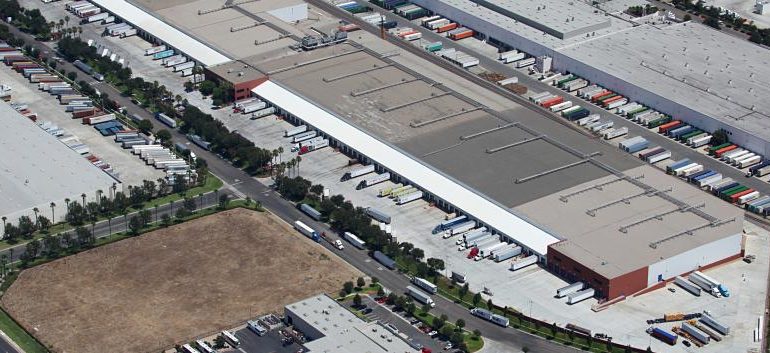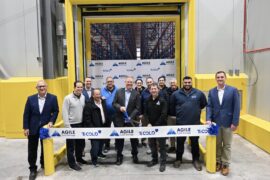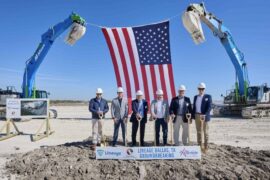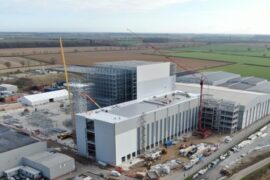
The DOE recognized the cold storage warehousing operator for pioneering a new and innovative way to improve energy productivity using a process dubbed “flywheeling,” which proactively manages energy consumption using a proprietary machine learning technology to reduce both cost and waste.
In June the United States Patent and Trademark Office (USPTO) issued a utility patent to Lineage and primary inventor Dr. Alex Woolf, principal data scientist at Lineage, covering the flywheeling technology (US 10,323,878 B1).

“This great honor from the DOE is a testament to the hard work and dedication of our talented team, and it is quite humbling to be recognized as a leader in energy conservation. Flywheeling is one of many ways Lineage lives our purpose of transforming the food supply chain to eliminate waste and help feed the world,” said Greg Lehmkuhl, Novi, Michigan-based president and chief executive officer of Lineage.
The temperature controlled supply chain is energy intensive by nature, making energy conservation a key priority for Lineage. On average, each of the company’s more than 200 facilities across North America, Europe and Asia can store approximately 24,000 pallets of inventory, the equivalent content of approximately 770,000 home freezers. Lineage’s North American power consumption is approximately equivalent to that of a mid-sized US city.
“We are entrusted with ensuring that billions of pounds of food across the United States and the globe are kept at optimal temperatures throughout the supply chain, and we are obsessed with finding new ways to do this even more safely and efficiently than has ever been done before,” said Michael J. McClendon, president of Lineage Europe and executive vice president of network optimization.
“Better Plants partners such as Lineage are implementing innovative energy efficiency solutions in the industrial space that are cutting costs and energy use, and the Better Practice Awards honor their leadership,” said Valri Lightner, acting director of DOE’s Advanced Manufacturing Office.
Lineage will be formally recognized at the July 10-11 Better Buildings, Better Plants Summit in Arlington, Virginia. During the summit, the cold storage logistics company will present its award-winning project as part of the “Best of the Betters” session.
About ‘Flywheeling’ Technology
Lineage’s flywheeling technology minimizes energy costs and increases utilization of renewable energy sources by precisely timing electricity consumption. It determines when peak demand for energy usage will occur and avoids the relevant periods by super-cooling the warehouse in advance.
Lineage’s algorithms rely on advanced physics, mathematical optimization, large scale sensor deployments and machine learning to accurately quantify how each building interacts with its environment and optimizes accordingly.
The company piloted flywheeling at its Mira Loma, California facility in 2018 with the goal of reducing the cost of refrigeration per pallet of goods. As part of this effort, Lineage deployed the algorithms and also upgraded warehouse infrastructure, instrumentation and control equipment. In 2018 a 39% reduction in normalized cost was achieved at Mira Loma as a result of this initiative, and there are plans to roll it out to additional locations within the network in the coming year.
Globally, Lineage offers clients over 1.3 billion cubic feet (37 million square feet) of space for storing beef, poultry, pork, seafood, baked goods, ice cream, fruits, vegetables, ready meals and other food products.
About Better Plants Program
As part of DOE’s Better Buildings Initiative, Better Plants works with leading manufacturers and agencies to boost their competitiveness through improvements in energy efficiency. The annual Better Practice Awards are presented to select partners for outstanding accomplishments in implementing and promoting the practices, principles, and procedures of energy management in industry.
Better Plants partners voluntarily set a long-term goal, typically to reduce energy intensity by 25 percent over a 10-year period across all their US operations. DOE supports these efforts with technical expertise and national recognition.






